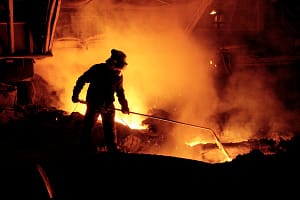Men with GCSE qualifications or below employed in certain manual occupations are more likely than other groups to work in industries at particular risk from new barriers to trade with the EU after Brexit. Historically, those in this group have struggled to find equally well-paid work elsewhere when job losses have occurred.
That is one of the key conclusions from detailed new analysis of trade data carried out by researchers at IFS and funded by the ESRC’s UK in a Changing Europe initiative.
The EU is the UK’s largest trading partner. It is the most important destination for UK exports and the most important source of imports to the UK. In new analysis, researchers at IFS have investigated which industries, regions and types of workers would be most and least affected by increased barriers to trade with the EU under different Brexit scenarios. The scenarios consider both potential new tariffs and higher non-tariff barriers (such as customs checks). Below are some of the main conclusions from our analysis.
Impacts will vary across industries
- Clothing manufacture, transport equipment (including car manufacturing) and the chemicals and pharmaceuticals sector are at particular risk from higher trade barriers. These industries sell a large fraction of their output to the EU. The transport equipment sector is particularly exposed because the EU is also the source of a quarter of its inputs; with increased trade barriers, the cost of its inputs from the EU would rise and demand for its outputs in the EU would fall.
- Finance is the most exposed services industry, as it currently exports a relatively large share of its output (12%) to the EU. Crucial here will be the scale of non-tariff barriers, including the potential loss of passporting rights, after Brexit.
- Industries such as agriculture may benefit from trade barriers if consumers substitute away from more expensive imports from the EU towards products made in the UK. However, the industries that could benefit make up only a small share of employment and the overall economy. These benefits would also come at the expense of consumers facing higher prices.






Leave a Comment